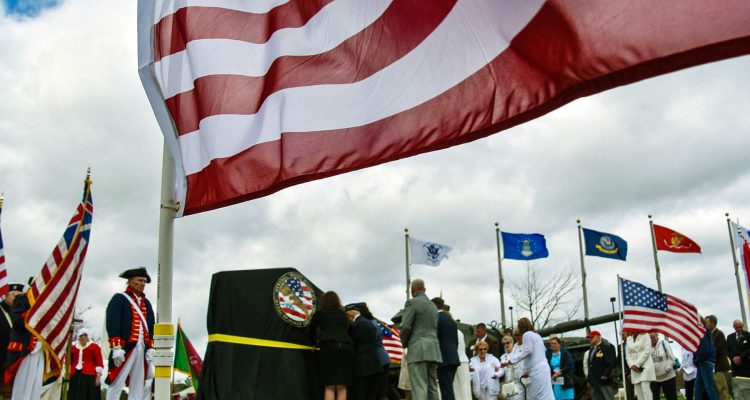It was heads.
For the first time in five years the individual tossing the coin prior to the kickoff of the Super Bowl turned over a “head” just as West Virginian Woody Williams promised he would.
The 94-year-old Medal of Honor recipient for heroism during the World War II was one of 15 recipients of the country’s highest veteran honor invited to the NFL’s annual championship, and although Williams does not claim a favorite team, the experience was yet another he’ll never forget.
“When we were kids, flipping a coin was a very common thing. We flipped coins to make decisions all of the time,” he said with a chuckle. “We would flip the coin and place it on the back of our hand.
“Everyone kept telling me that, for the past four years, the coin flip was all tails, so I told them I would change that,” he said. “I told them I wasn’t going to flip a tail, so I flipped it, and it turned out to be a heads.”
How Williams became the one to flip the commemorative coin was the biggest honor of all.
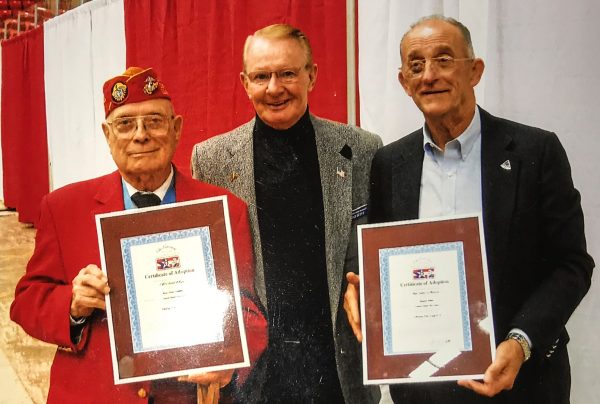
“That is something I am very, very proud of and humbled by because the other recipients got together, and they made that decision,” he explained. “I was very honored that my fellow recipients felt I was worthy to represent them. That means a lot to me.
“After the coin flip, we went to our seats, and they were only 23 rows off the field. They were great seats; I’ll tell you that,” he said. “Except, when the people around me would get all happy about something that happened in the game, they would all stand up, and I couldn’t see a thing! That was the only negative, though, and it meant very much to all 15 of us to be honored in that way before the game.”
Williams has visited Wheeling on two occasions for the annual Lois Stobbs Memorial Veterans Day Race that takes place each November, and he hopes to return to the Friendly City again in the future.
“The Veterans Day Race in Wheeling is really a special event, and it is very patriotic,” Williams said. “The number of people who participate is amazing, especially since the distance for that race is so many miles. I’ve been very impressed both times that I have traveled there for that race.
“Wheeling is very similar to other areas in West Virginia, and that’s something I very much enjoy and admire about the people of our state,” he continued. “We do a pretty good job, I believe, across the country, but the patriotism in West Virginia always has been very impressive to me.”
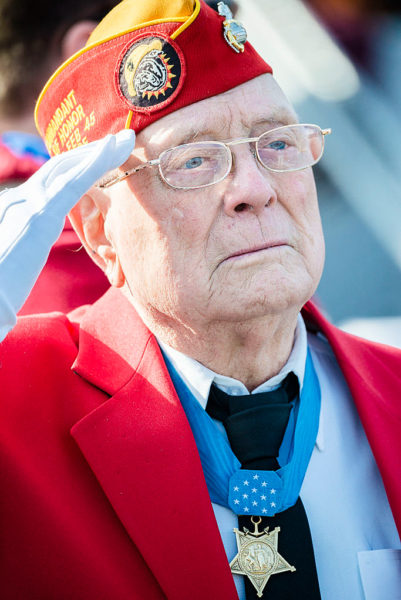
“And we loved having Woody here, and we hope he can come back again,” said race founder Hugh Stobbs. “He’s quite the character and very humble. We were all very honored that he’s accepted our invitation those two years.”
Just as he has been in Wheeling, Williams has been honored on a plethora of occasions since returning to the U.S. from his service in World War II. To this day, he still laughs at the fact that his enlistment initially was denied by the Marine Corps because he did not meet the height requirements. Once the height rules were changed, he was quickly accepted and trained as a demolition man.
Specifically, he learned how to operate a flamethrower, and that weapon saved more lives than he knows of during the Battle of Iwo Jima. Williams battled for four hours, setting demolition charges to clear a path for awaiting tanks, and at one point, according to information released in October 1945 when honored by President Harry S. Truman, the solider used his flamethrower to destroy a Japanese bunker filled with enemy personnel.
“I didn’t think I did anything except the job the Marine Corps trained me to do,” Williams said modestly. “It’s what I was supposed to do, and I was just happy to survive. I know why I did, too. It was either because God wasn’t ready for me or because the devil didn’t know what to do with me.
“Even on the day I received the Medal of Honor, I had no idea what it was, and I had never heard of it. It wasn’t in my vocabulary,” he continued. “I had never heard the words that were read that day, and no one ever asked me anything about it. I received the Medal of Honor because of what others witnessed that day, and I had no idea my life was going to change.”
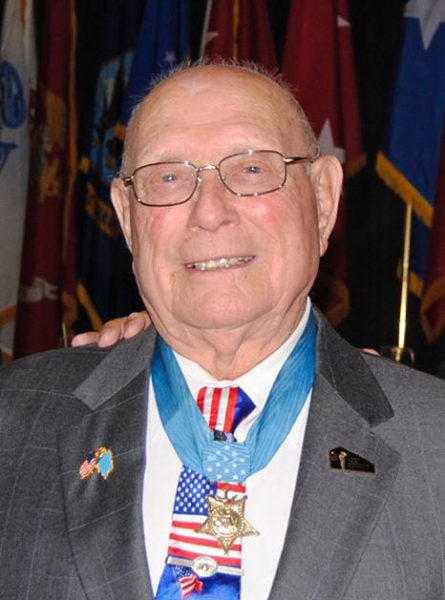
These days, Williams walks into restaurants and people stand and applaud. He has no idea how many photos have been taken or the number of hands he has shaken. When he was making the trip home to Quiet Dell, W.Va., he believed he would return to living his life in the country and live free in the United States he defended.
“But it didn’t work out that way. My life totally changed,” he admitted. “Back in those days, the issues soldiers had in dealing with their service wasn’t called (Post Traumatic Stress Disorder). The Army referred to it as a ‘mental breakdown,’ and the Marine Corps called it a ‘crack up.’
“My brother who also served suffered much more than I did, but I had the flashbacks and things like that, and I didn’t learn how to handle it until 1962. It was just part of living,” he said. “There were no counseling services at that time, and we had to make it on our own. We didn’t have anybody to go to except our families, and I am very happy that today’s veterans do have places to go to get the help they do need.”
Williams is set to travel from his home in Ona, W.Va., a small town near Huntington, to Lubbock, Texas, to assist with breaking ground for a memorial honoring Gold Star family members, an initiative he adopted several years ago after speaking to a group in 2012 in Parkersburg.
“When the event was over,” explained John Nanny, a close friend of Williams’ and a veteran of the Marine Corps, “all of the people were leaving except for this one man in the back of the room. Woody didn’t know if he had said something that upset the man, so he went to him to talk with him.
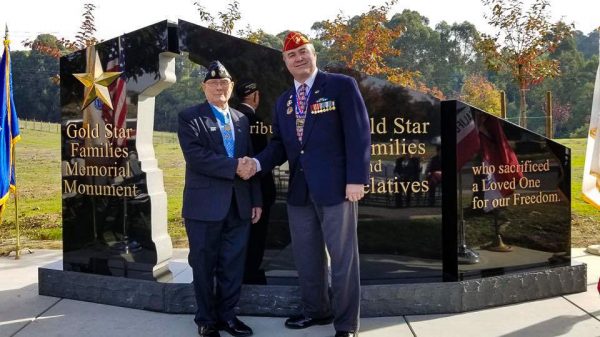
“After asking the man if everything was OK, the man raised his head, and he had tears streaming down both of his cheeks,” Nanny explained. “And then the man said to him, ‘Dads cry, too.’ And that’s what got Woody started with his efforts to honor all Gold Star family members.”
The first such memorial in West Virginia was dedicated in 2016 in Vienna, W.Va., and there are 31 similar monuments representing 39 states. An additional 51 memorial monument projects are currently in progress.
“It’s where I believe we have failed through the years involving the families who have sacrificed family members while defending our country and the freedoms our citizens possess,” Williams said. “We have improved over the last few years, and one of my goals now is to see that increase more and more. We didn’t have any recognition for many, many years until 2013. And when we do honor Gold Star families, the focus has been on the mothers.
“While that’s fitting and appreciated, the fathers make those sacrifices, too, and so do the rest of the families. It’s something that never leaves them. It’s something they never forget, either,” he said. “Gold Star family members all grieve when they lose a loved one, and we have made progress. That’s true everywhere in our country. It’s true here in Ona, and it’s true in Wheeling, too. I’d really love to see a memorial monument project take place in the Wheeling area. I really would.”
(Photos provided by Woody Williams)


